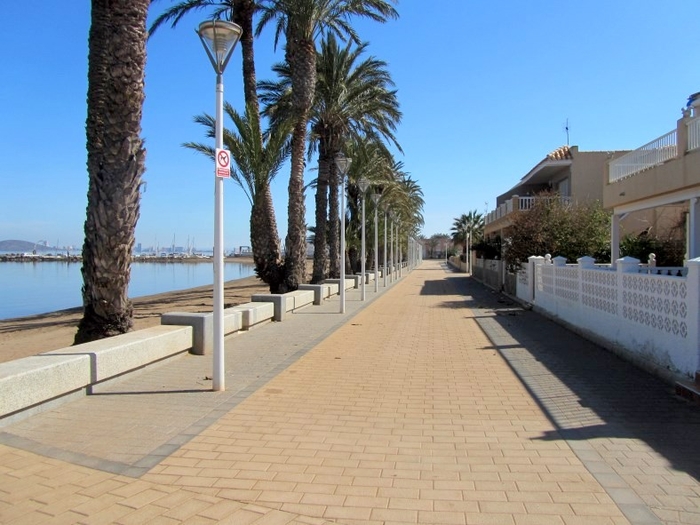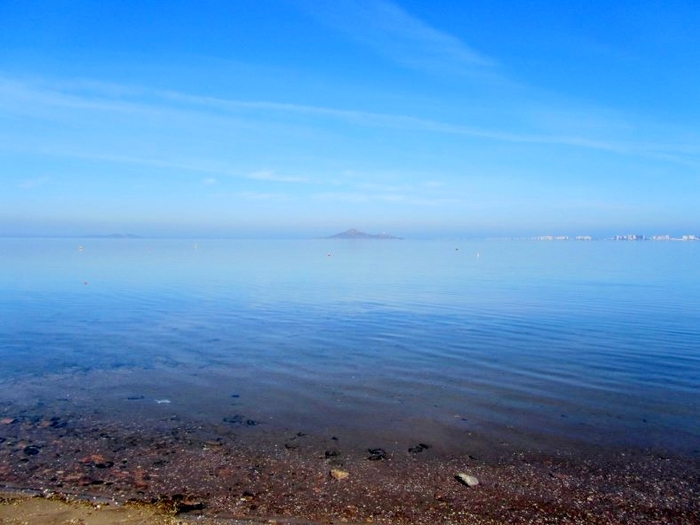

Guidelines for submitting articles to San Pedro del Pinatar Today
Hello, and thank you for choosing San Pedro del Pinatar.Today to publicise your organisation’s info or event.
San Pedro del Pinatar Today is a website set up by Murcia Today specifically for residents of the urbanisation in Southwest Murcia, providing news and information on what’s happening in the local area, which is the largest English-speaking expat area in the Region of Murcia.
When submitting text to be included on San Pedro del Pinatar Today, please abide by the following guidelines so we can upload your article as swiftly as possible:
Send an email to editor@spaintodayonline.com or contact@murciatoday.com
Attach the information in a Word Document or Google Doc
Include all relevant points, including:
Who is the organisation running the event?
Where is it happening?
When?
How much does it cost?
Is it necessary to book beforehand, or can people just show up on the day?
…but try not to exceed 300 words
Also attach a photo to illustrate your article, no more than 100kb

Cartagena beaches: Islas Menores
Islas Menores beach on the shore of the Mar Menor
The beach of Islas Menores is a 900-metre stretch of golden sand on the south-western shore of the Mar Menor, and is popular all year round with both the Spanish and foreign visitors and residents, although of course it is far more crowded in the summer.
The shoreline is interrupted by the small headland of Punta de los Barracones on which the Club Náutico, which underwent an overhaul in 2015, is located, and access to the sand is provided for those of limited mobility.
Islas Menores is on the long walking route which stretches from El Carmolí to Cabo de Palos, and those undertaking the route will enjoy the part of it which takes in the pleasant Paseo Marítimo here. For those arriving by car parking is generally not difficult in the residential streets around the centre, although again in summer the situation changes somewhat.

This is a Mar Menor beach, which means that it is inside the circle of the Mar Menor, which covers a surface area of nearly 170 square kilometres, with 70 kilometres of internal coastline, separated from the Mediterranean by a 22km long strip of land, La Manga del Mar Menor, which is connected to the Mediterranean via a canal channel, feeding the Mar Menor with natural saltwater.
It has shallow fringes, which slope gently, and is only 7 metres deep in the centre, so the water temperature is warmer than that of the Mediterranean, particularly around the edges where it is possible to wade out 50 metres from the shore and still only be waist deep.
Murcia is the warmest mainland region in Spain, and has an average temperature of 18 degrees, which makes it perfect for year-round watersports activity and bathers can enjoy the waters of the Mar Menor for most of the year. The water in the Mar Menor is not tidal and has no currents or waves, so is perfect for family bathing or watersport beginners.
Facilities on the beach include lifeguard service in summer which is open from 11am to 8pm during peak holiday weeks, public toilets, beach bars and seafront restaurants, rubbish bins, wooden walkways, foot showers and normal showers, bins, recycling points and beach bar. Other bars and restaurants are nearby in the centre of Islas Menores.

The beach has special facilities for the disabled in the form of a "disability module" which includes an amphibious bathing chair operated by volunteers, adapted toilets and changing room, shower and shaded rest area, as well as allocated disabled parking spaces.
In consequence of all these facilities Islas Menores is proud to fly the Q for Quality flag in recognition of the services provided.
Access to those travelling by road to Islas Menores is best via exit 9 on the RM-12 motorway to La Manga, where it is clearly signposted
For further information visit the Mar de Cristal and Islas Menores local section.

Safety precautions for bathers
This is a Mar Menor beach and it is advisable to observe the following safety precautions when bathing:
Most of the Mar Menor beaches have very gently sloping shelves, meaning that bathers can walk a considerable distance from the shore and still only be waist high in the water. These shore fringes are also very warm, heating up more than the deeper waters, or the Mediterranean coastline, particularly during the hot summer months.
Many beaches are also protected by netting to exclude jellyfish.
This creates safe bathing areas for families but also leads to a situation which can be life threatening, as the safety of the beaches results in many elderly bathers bathing alone.This in itself is not life threatening, but every year there are unnecessary deaths when bathers suffer a heart attack, stroke, faint or have a dizzy spell of some sort whilst bathing alone, slipping into the water without anybody else being aware that this has happened.
The transition from hot beach to cold water can shock the body, causing dizziness or fainting, so it is advisable to splash the body with water to cool down before wading out into the Mar Menor or Mediterranean.
Even though there are lifeguards, accidents happen and every year there are unnecessary fatalities, the simple rule being if you have a medical condition, are taking medication, or are of advanced age, don´t bathe alone, no matter how shallow and calm the water is.
And for all ages, a red flag means do not bathe, particularly on the Mediterranean beaches.
Click for introduction to the Cartagena beaches
Click for more information about the Cartagena municipality
Other Cartagena Beaches
